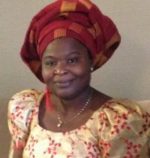Bolanle Elizabeth Arokoyo Morphology Lecture Series #I
This lesson will be all about Morphology. The topics and materials are taken majorly from Arokoyo (2017) ‘Unlocking Morphology.
Morphology is a branch of linguistics that deals with words, their forms, their internal structures and how they are formed. The word,morphology, was coined in the second half of the nineteenth century by a German poet, novelist, playwright and philosopher, Joham Wolfang Von Goethe (1749-1832). It had a biological reference meaning ‘the study of the form of animals and plants’. The word is derived from two Greek words- morph meaning shape or form and –logy which means knowledge. August Schleicher (1859) was the first to use the word ‘morphology’ in the linguistic sense. Morphology therefore refers to the knowledge or study of forms or shapes of words.
Morphology studies the internal structure of words and word formation rules. Howard and Etiene (2007, p. 3) define it as ‘the study of morphemes and their arrangements in forming words’. It is concerned with the forms of words, how they are formed and how they are inflected. It describes morphemes and how they occur within a word. Haspelmath and Sims (2010, p.3) see morphology as ‘the study of the combination of morphemes to yield words’.
Thus, morphology studies the formation of words. Since languages always have a need to create more words and thereby enlarge their lexicon, morphology provides the rules that govern the formation of meaningful words in a language. These rules lead to the derivation of complex words. Morphology is the study of the smallest meaningful unit of a language. Itstudies how this smallest meaningful unit combines to form words. The basic concept studied in morphology is the morpheme.
Morphology studies word structure and the importance of words cannot be over-emphasized. It interfaces between phonology, syntax and semantics, hence the field of morpho-phonology, morpho-syntax and morpho-semantics. Morphology is language specific i.e. the expressions of morphology in languages differ. What language A expresses via morphology is expressed via words in language B. For example, Igala and Hausa express pluralization by means of morphology while Yorùbá makes use of a word. The plural form is expressed via inflections in Igala and Hausa but not in Yoruba. The morpheme am- is prefixed to nouns to form plural nouns while in Yorùbá the word àwọn is used to express plurality. English makes use of the morpheme –ed to mark past tense while in Yorùbá past tense is not morphologically marked; it is implied. Hausa has resumptive pronouns and also marks gender on it. Yorùbá neither use resumptive pronouns nor mark gender. Consider the following examples (the Igala data is taken from Ilori (2009, p. 2-3).
Igala
1 SingularPlural a. éwó‘goat’àm-éwó‘goats’. b. àtá ‘father’àm-`atá‘fathers’. c agboji ‘leader’àm-agboji‘leaders’
English
2. Present TensePast Tensea. a. walk walk-ed b. laugh laugh-ed c. smile smile-ed d. cough cough-ed
The knowledge of a language implies the knowledge of every aspect of the language including its morphology. A speaker who has the knowledge of his language knows about the possible types of words in the language, knows about the forms and shapes of words in the language, has knowledge about the internal structure of words in the language and also knows about rules governing word formation. He is able to make judgments about possible derived words and types of inflections in the language.
Looking at the examples above, we could say that Igala, Hausa, and English make more use of morphology than Yorùbá. This means that the morphological typology of languages differs.
We will continue our lesson by looking at types of morpheme
References
Arokoyo, Bolanle Elizabeth 2017. Unlocking Morphology. Ilorin: Chridamel Publishing House.
Haspelmath, Martins and Andrew Sims 2010. Understanding morphology. London: Hodder Education.
Howard, G. and Z. Etienne. 2007. Words, meaning, and vocabulary: an introduction to modern English lexicology. London: Continuum Publisher.
Ilori, Johnson, F. 2009. Noun-plural Formation in Igala in Adika, Fabunmi and Salawu (eds.) Current perspectives in phon-syntax and dialectology. Winneba: Department of Gur-Gonja, Faculty of Languages, University of Education, Winneba.
